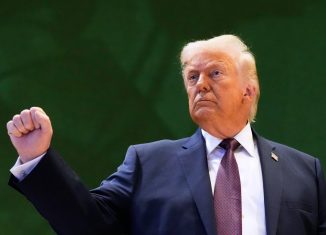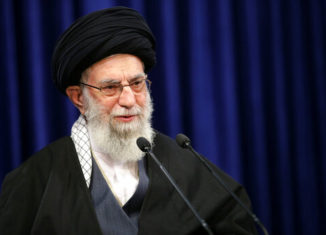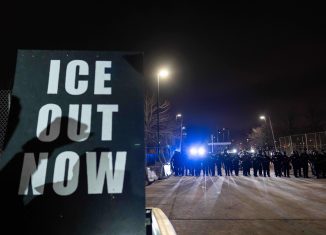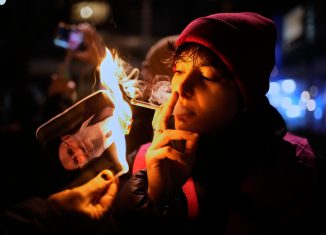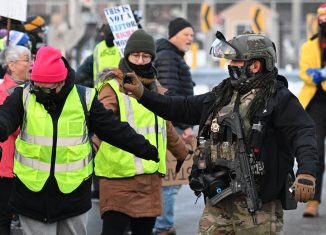White House National Security Adviser John Bolton spoke to Brian Kilmeade about why President Trump walked away from negotiations with North Korea, imposing sanctions on Cuba for past actions against America and for supporting the Maduro regime as well as hoping for a peaceful transition in Venezuela. Bolton also commented on the U.S. using offensive cyber operations to combat China for their actions targeting two dozen universities in the U.S. and around the globe in order to steal research about maritime technology being developed for military use.
Watch here:
BRIAN KILMEADE, HOST, FOX NEWS RADIO: Joining us now is John Bolton, the national security advisor. Thanks so much for joining us.
JOHN BOLTON, NATIONAL SECURITY ADVISOR, TRUMP ADMINISTRATION: Glad to be with you.
KILMEADE: So, Ambassador, first off, why – why Cuba today – why go after Cuba today?
BOLTON: Well, you know, the – the subject matter that you’ve been talking about, the Helms-Burton Act and the authorization that Americans who’ve lost property when the communists took over may seem like an old issue, but it’s one that deeply affected many Americans and they’re ability to get compensation from the Cuban government has been precluded by waivers of that statute that successive administrations have – have allowed to happen.
We’re now reconsidering that, limiting it, more steps are possible here. And the real reason is to say we don’t accept what the Castro government did back in the day was legitimate. We think we’ve put off justice for American citizens who were wronged by all that for too long.
And that would be a decision I think would be appropriate to make quite apart from Venezuela. But when you combine it with what the Cubans are doing in Venezuela, you know, there have been public estimates that there are as many as 20,000 to 25,000 Cuban security forces in Venezuela, propping up the Maduro regime, really feeding off the oil revenues like the entire corrupt Maduro regime has been doing as well.
And in the – in the hemisphere, a lot of people call the country now “Cuba-zuela”, so pervasive is Cuba’s influence. Look, I just think for American national security interests, we need a peaceful transition of power in Venezuela, and we need to deal with the dictatorships in Nicaragua and Cuba as well.
KILMEADE: I guess one step at a time, but when you talk about Guaido, he was able to land on a commercial fight, get back into the country. How significant was that? Were you worried?
BOLTON: Well, you know, we’re – we’re worried about the physical safety of everybody in the opposition. We’ve seen what Maduro has done in the past, even in the past month with this demonstration of public opposition, best estimates are that something like over 40 people have been killed by either the regime or the colectivos, which are groups of motorcycle gangs basically, organized and financed by Cuba outside of the military that have intimidated individual citizens.
So the danger for everybody involved in this is very high. But you’re quite right, Guaido had a very successful reentry into the country yesterday. I think once again, it demonstrated to everybody who’s paying attention that Maduro support has dropped.
It’s just now the people who are part of his corrupt inner circle really that are still propping him up.
KILMEADE: Well they’ve got the guns and they got the army. Is – do you have other – other arrows in your quiver to turn up the heat more?
BOLTON: Well economic sanctions that have already been imposed on Venezuela are crippling the oil economy which has always been its major source of revenue. We are looking considering other economic steps we could take as well. And on the military, I think this is important fir people to understand.
The military itself has taken very limited action against the opposition. We’ve got a government in exile now functioning in (inaudible). It’s a government in exile, except it’s not in exile because the military knows the enlisted personal, the junior officers, they’re 80, 90 percent for Guido.
It’s only the senior officers and they have been talking. Your newspaper reporters are not going to find this out. But a lot of the senior officers have been talking to the opposition. They talk to themselves; it’s a small society at the top there. I don’t think they want to have conflict within the military.
I think they’d like to try and move as a group. Some of them are going to have to flee the country. But what we would like to see for a peaceful transition is the military basically just say altogether as much as that altogether as we can get. We now support Guido and it’s time for Maduro to leave. And that is still possible.
KILMEADE: Well, let’s hope so. I don’t think there’s anybody in America routing for Maduro to stick around. However, Alexandria Ocasio-Cortez says it’s complicated it comes to should Maduro leave. Does that surprise you that some lawmakers wouldn’t see the wisdom in Guido being there in power?
BOLTON: Well, I think it shows that within the Democratic Party, there’s a problem with democracy. Virtually the entire democratic world has condemned Maduro’s election as flatulent and illegitimate.
And it was indeed invoking Hugo Chavez’s own constitution that the national assembly said anybody who was illegitimately elected can’t fill the office — the office’s void, the constitution provides that the president of the national assembly then become interim president, that’s Juan Guido.
So, the opposition is follow the constitution, Maduro has not. And if it’s — there are a lot of American National Security interests involved here, don’t get me wrong. But if you have a preference for democracy as the way government should be run you should be with the opposition and not Maduro. That’s not complicated.
KILMEADE: John Bolton, so high stakes as you saw last week in Vietnam. And everyone was talking about why the president walked away when he did being that nothing was signed yet. And some are speculating David Sanger is the other for the New York Times said that one of the reason was, was this undiscovered site.
That when you confronted North Korea with it, they did not want to have anything to do with shutting that down and was kind of surprised that you had it. Could you bring us inside those talks and the role of this secret site?
BOLTON: Well, the president really did exactly the right thing. He told the North Koreans as he said to them before, you have the prospect of an enormously bright economic future if you’ll only make the decision to give up all your nuclear weapons as well as ballistic missiles and chemical and biological weapons.
Just make that decision, make it safer for your people and make their lives better. And the North Koreans wouldn’t take him up on that offer. So, rather than accept the lesser deal that didn’t meet the standards that we wanted for denuclearization, the president said in a very friendly way we’re going to walk away.
We can come back and have further discussions. But I think the North Koreans were surprised that the same playbook that they have run against three prior administrations didn’t work with President Trump. That’s what they were mist surprised about.
KILMEADE: We’re you upset that he seems to be normalized on the world stage walking around Vietnam like a celebrity, coming in there with his sophisticated car. Now this is Singapore, he had a chance to join that city. Are you worried that we’re normalizing him?
BOLTON: Well, the president just doesn’t think he has given up anything by having these meetings. And I have to say, having watching the way conventional diplomacy worked with the North Koreans over the past 30 years, that is to say not at all in stopping or slowing down their nuclear program.
The president’s turned this on its head, he’s tried something different. It’s hard to say that he’s less successful than 30 years of failure. So we’ll see how this plays out. The thing is, by having these summits first in Singapore, the president held open the door for the North Koreans there.
They didn’t walk through it, he’s held the door open again in Hanoi, they didn’t walk through it there too. He’s still got the door open, they could have a bright, economic future, just give up all your weapons of mass destruction and ballistic missiles.
KILMEADE: Big story in the Wall Street Journal today, the Chinese hackers have been targeting university in pursuit of maritime military secrets of what you’re doing in the South China Sea.
How concerned are you on this? Do you in fact back this up that this is taking place, do we have the cyber defenses to battle this off?
BOLTON: Well I wouldn’t want to get into all the classified material about war and cyberspace, but I’ll tell you this administration reversed the Obama administration’s limitations on offensive U.S. cyber activity so that we’re not just sitting here being pummeled by the North Koreans, the Russians, the Chinese, the Iranians and others.
We’re now able to cut through the bureaucracy to allow offensive cyber operations to help create deterrents so that the other side doesn’t attack us to begin with. This is a huge change, obviously there’s not a lot we can say publicly at this point.
But it’s already having an effect. I just think Americans need to understand this threat in cyberspace is very real and we’re determined to counter it.
KILMEADE: Twenty seconds, just wondering if you believe we’re going to be sitting – hearing about a Mar-a-Lago summit where you’re going to be signing a trade deal. How confident are you that it’s going to – going to get done?
BOLTON: Well the negotiations are underway, we’ve got a possibility for it, the president’s deeply involved. He’d – he’d like to get the right kind of deal, we’ll see if the Chinese are willing to do what they need to do.
KILMEADE: John Bolton, you’re using your broadcasting background to help me out here against the hard break. Thank you very much.
BOLTON: Thank you Brian, take care.



